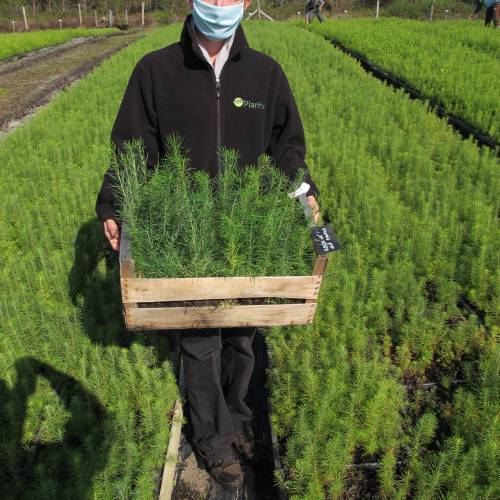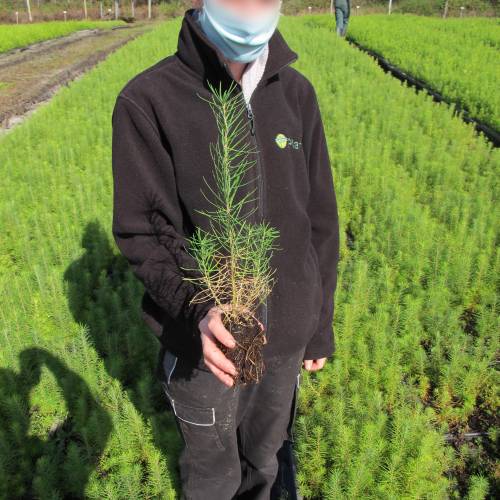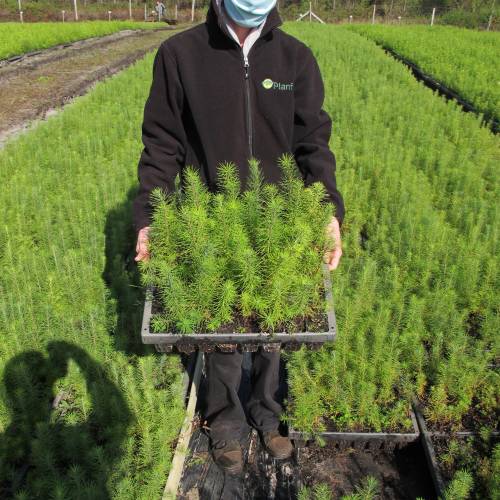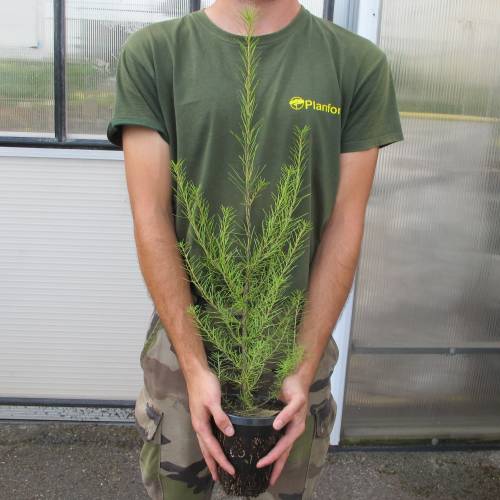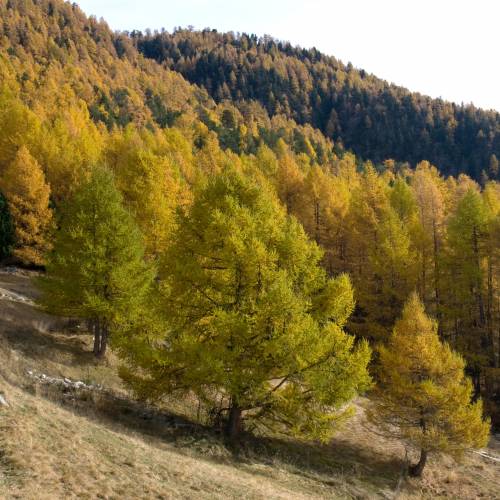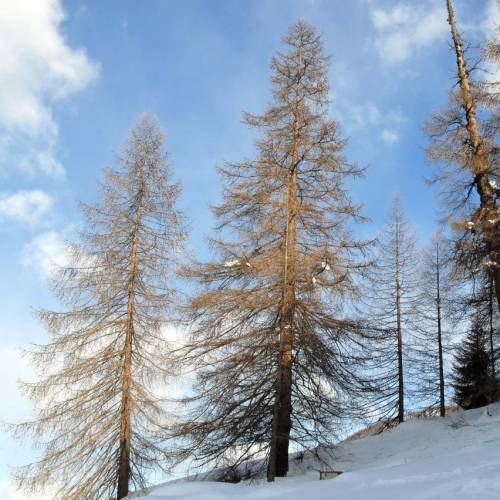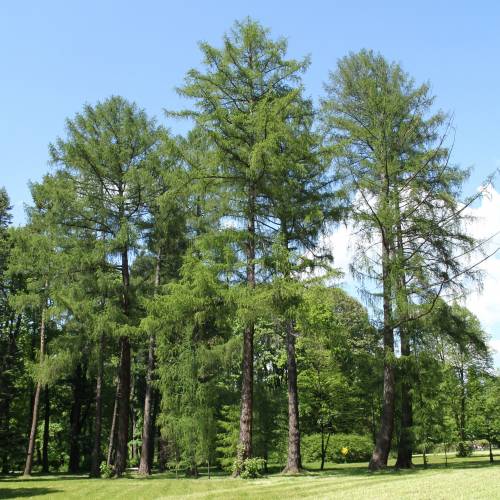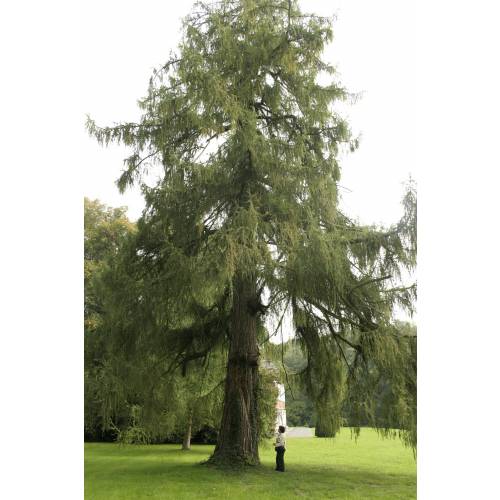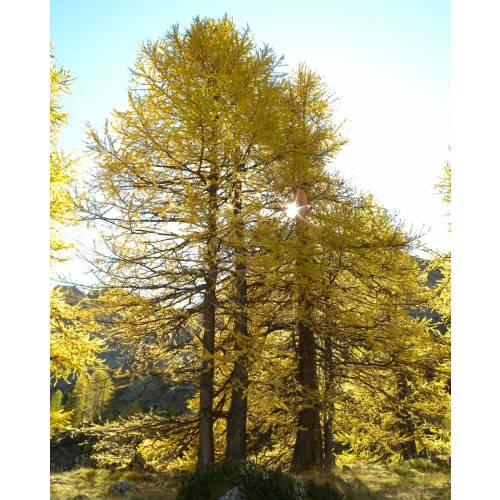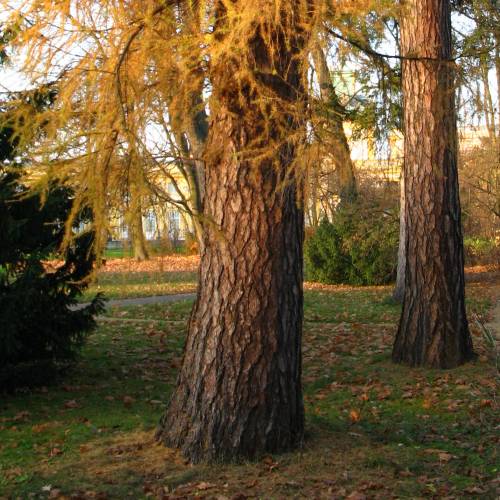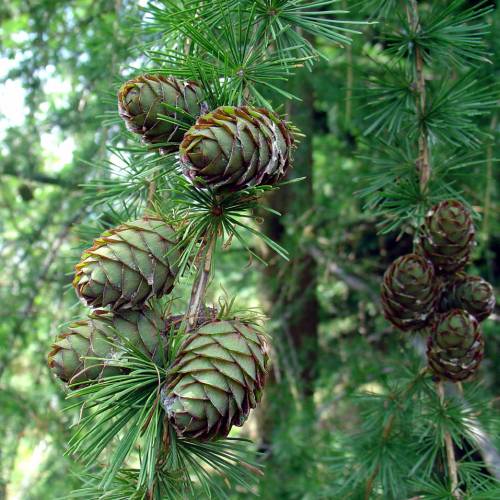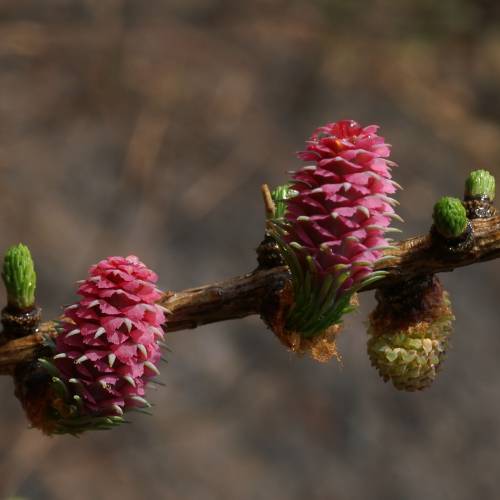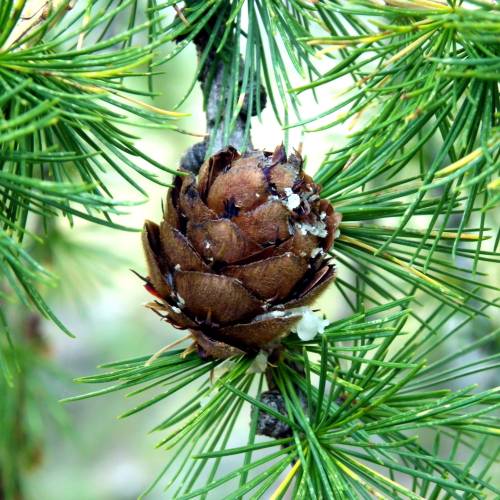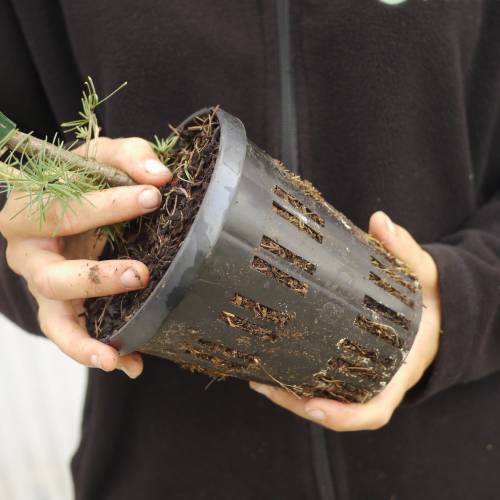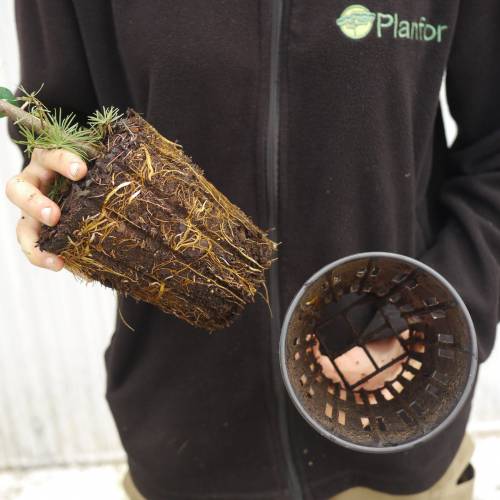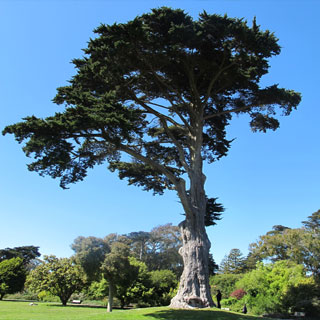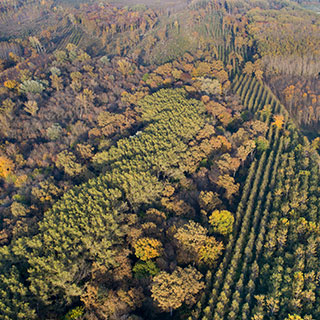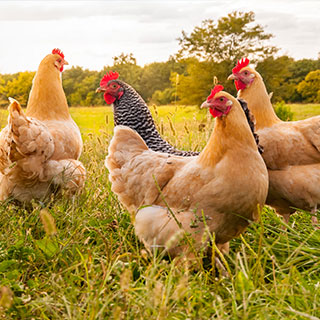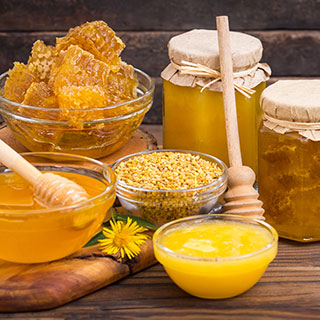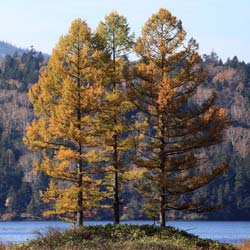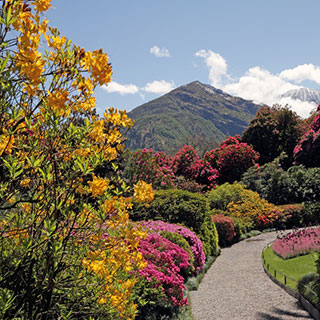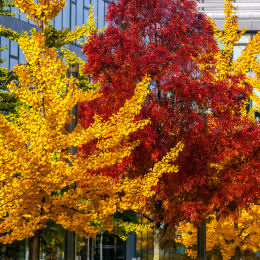
Plants
Larch, European / Larix decidua
-
13.53 € European Larch - Larix decidua
44Q - Available
-
12.93 € European Larch - Larix decidua
44W - Available
-
11.85 € European Larch - Larix decidua
44R - Available
-
10.77 € European Larch - Larix decidua
44x - Available
-
4.95 € European Larch - Larix decidua
44JJJ - Available
-
4.45 € European Larch - Larix decidua
44JJK - Available
-
3.96 € Special Offer - 20%
44JJL - Available
-
3.45 € European Larch - Larix decidua
44JJM - Available
-
1.86 € European Larch - Larix decidua
44JJN - Available
-
1.36 € European Larch - Larix decidua
44JJP - Available
-
1.18 € European Larch - Larix decidua
44JJQ - Available
-
0.99 € European Larch - Larix decidua
44JJR - Available
-
0.89 € European Larch - Larix decidua
44JJS - Available
-
0.00 € European Larch - Larix decidua
44M - Request for quotation
-
Area of origin: Mountains of mid Europe up to the highest limit of forests.
Adult Dimensions: Height up to 40 m (131'), width up to 15 m (49,2').
Foliage: Deciduous
Soil Type: Rich.
Hardiness: Hardy to -36°C. Sensitive to atmospheric pollution.
Exposure: Full sun.
Properties and uses:
The rapid growth and the yellow foliage in autumn makes this tree very popular for parks. Very important in forestry as the reddish brown wood has clear rings ad is strong and tough.
Plant, or reforest European Larch, Larix decidua, Larix europaea – Foresters Guide
1) The European Larch (Robinia pseudo-acacia) is it suitable for my land? The European Larch needs a lot of light and doesn’t bear the competition with other forest species.
The European Larch thrives in dry and sunny areas. It is not sensitive to cold and adapts to important and sudden temperature variations. It tolerates a minimum rainfall of 600mm per year when it is evenly distributed, but it grows even better with bigger rainfalls (up to 1100mm per year, and even more). It thrives in montane or semi-continental climate. It can develop well in slopes, even steep ones. The European Larch is a pioneer variety known for its hardiness.
2) Which planting density for my European Larch plot? (Larix decidua, Larix europaea)
The planting density is the number of plants planted in one hectare (acre). Here it means determining the initial number of young plants and to choosing their repartition in the available space.
The planting density is defined by the gaps in between the lines as well as the spacing in between each plant on a same line.
It is the basics of the silvicultural path which must lead to a final trees’ population of quality and to the fulfilment of the land’s owner set goals.
Advice: When choosing the density, think about the width of the tool which will allow the maintenance of the gaps in between the lines. The space in between the lines must allow clear passage for a tractor-drawn, maintenance tool.
For the European Larch (Larix Decidua):
- From 800 to 1100 plants/hectare, like for the Douglas Fir. The trend of the moment is to reduce the European Larch planting, because of its need in large living space and because of the difficulty in selling the kindling.
3) How to prepare the soil to plant European Larch (Larix decidua, Larix europaea)?
In Silviculture, working the soil is a key element in the success of planting. The root system of the tree must take rapidly where planted. Whether the work is done mechanically or manually, we recommend working the soil in its depth for optimum planting.
4) How to plant the European Larch (Larix decidua, Larix europaea)?
a- Receipt, storage and preparation of the plants before planting
- Upon receipt, place the crates side by side, on a flat surface so as there is no air circulation underneath. Choose a shady spot protected from wind;
- Maintain a good humidity level of the plants on the crates placed on the edges,
- Plan for the possibility of watering if planting is delayed or if the plants require water,
- In case of frost, do not handle the plants and if frost is forecasted for several days, place mulch on the edges.
b- Planting
Our team of professional planters use a planting cane to place the earth-balled plants in situ. This ergonomic, light tool allows quality, quicker planting work. It is also possible to carry out a traditional planting work using a pickaxe or a spade
In all case, you must:
- Dig a hole a little bit larger than the earth-ball ;
- Position it well in the hole;
- Cover it entirely;
Finally, the worker will tamp down the soil carefully with its foot. It is forbidden to press strongly or again to heel-butt the plant to avoid crushing the earth-ball and damage the root system of the plant.
Video on planting using a planting cane
Buy Planting cane
5) How to limit weeds on my European Larch plot (Larix decidua, Larix europaea) ?
During the first years, it is essential to eliminate all self-propagating plants. Not controlled they are going to be in competition with your plants and are going to deprive the young trees of the vital elements they require to grow (water, light and nutritional elements). You must therefore eliminate mechanically this unwanted competition until the trees are big enough to be able to dominate it.
Two types of operations are possible after planting:
Manual clearing around the plants
It is in fact acts often carried out using portable thermic Strimmers or billhooks to clear plants on a line or around the plants themselves.
Mechanical clearing of the space in between the lines
These actions are done using cutters and flail mowers, horizontal or vertical cutters, mounted on mini excavators or tractors. As a result, they cannot be undertaken outside the spaces available between the tree lines (seedlings or plants).
6) How to protect my young False Acacia plants from wildlife (Larix decidua, Larix europaea) ?
There is a necessity to protect the plot as soon as the population’s density of Cervidae (deer and roe deer in particular) risk leading to significant damage such as undergrowth of the plants or friction of the stems. Sometimes, the setting up of plants’ protection is also necessary as soon as the rodents’ population (rabbits, hares, coypu, voles...) are locally important.
3 types of protections are possible:
- Individual, mechanical Protections ( dissuasive netting, photo-degradable tubes,...)
- Protection by total wire-fencing of the plot,
- Protection by applying a repellent on each plant or on the borders of the plot.
Catalogue Protections against Game

